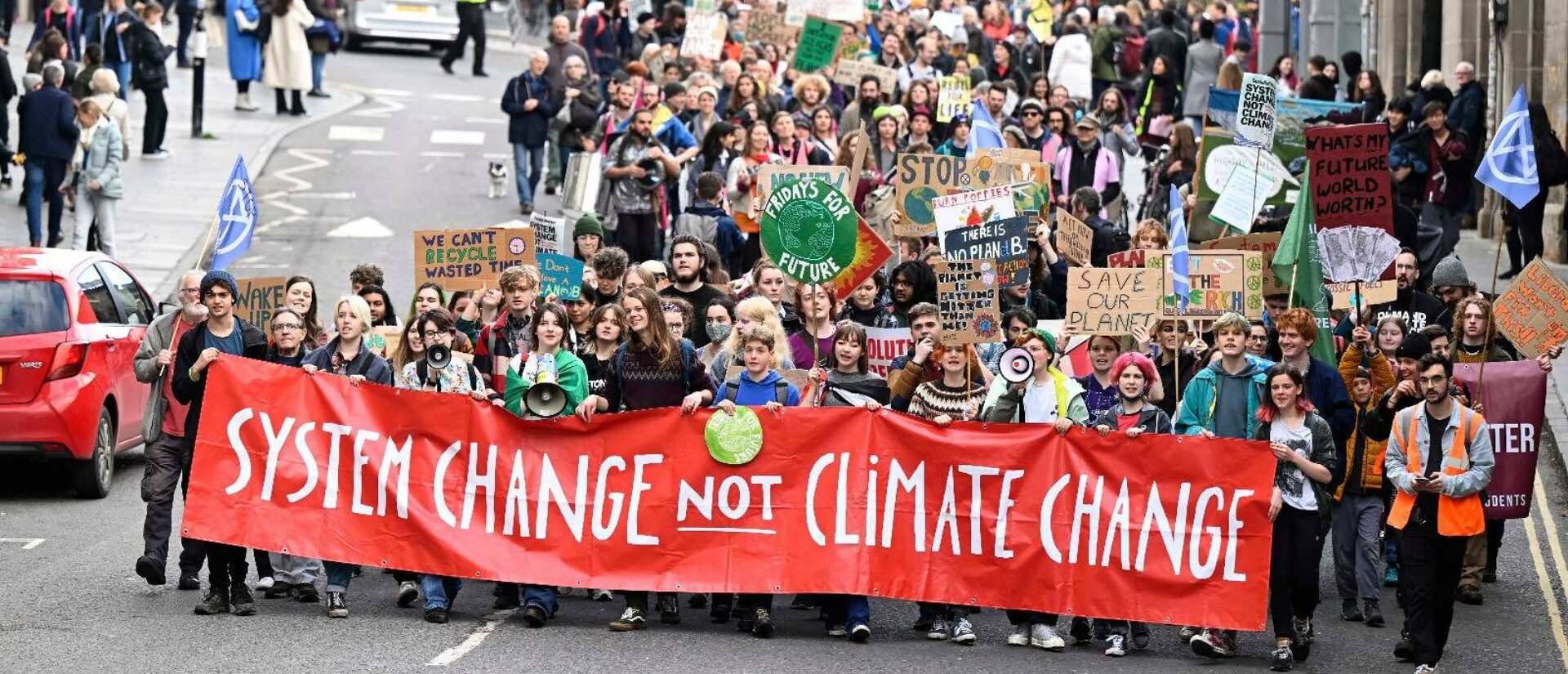
Climate finance as a business model
How Dutch climate negotiators colluded with business and undermined climate finance for developing countries
By investigative journalist Chris Kaspar de Ploeg(opens in new window) in collaboration with SOMO.
- Documents retrieved through the Public Administration Act (Wob) show that the Netherlands conducted a “joint preparation and engagement” with the Dutch business community during international climate negotiations.
- The Dutch delegation successfully lobbied against developing countries’ interests for a fair climate transition, in particular against expanding climate financing and against compensation for damage and loss due to climate disasters.
- To the extent that climate finance did come to poorer countries, Dutch business was also to benefit through public-private partnerships.
- Climate summits and trade missions are used by the Dutch government for ‘Holland branding,’ by ‘showcasing’ Dutch business as green.
- The Dutch government and business seem to see climate change as a revenue model: ‘Climate Change is Big Business’.
- While the Netherlands seeks solutions from companies and bets on ‘green growth’, the Netherlands’ CO2 emissions have increased by 12 per cent since 1990, according to consumption-based CBS figures.
- Climate justice remains a fundamental stumbling block to a robust international climate agreement, and thus to the chances of staying below 1.5 degrees of warming.
Delegations from around the world are currently convening in the Egyptian seaside resort of Sharm El-Sheikh in a new attempt to tackle the climate crisis. The hopes of the 2015 Paris climate summit, when the world agreed for the first time to stay below 1.5 degrees of warming, are now long gone. Global emissions are still rising and climate negotiations are difficult. A thorny issue is climate finance for low-income countries, which do not have the money for an energy transition. Rich countries have not kept their promises and the Netherlands is also falling tremendously short in this area. How can that be?
To answer that question, we looked at dozens of studies and thousands of pages of Wob-obtained documents from the Ministry of Economic Affairs, revealing the Dutch negotiating strategy at climate summits between 2013 and 2017. The documents show that business interests are well represented in the views of the Dutch delegation. The Ministry of Economic Affairs is also constantly trying to get out of its commitments to poorer countries. This does not bode well for the climate summit in Egypt.
The complete article is available on our Dutch website.
Do you need more information?
-

Ilona Hartlief
Researcher
Related content
-
Governments should remove the threat of ISDS to climate goalsPosted in category:Published on:Statement
-
COP27: EU adoption of a “modernised” Energy Charter Treaty would open door to more climate chaosPosted in category:Opinion
 Bart-Jaap VerbeekPublished on:
Bart-Jaap VerbeekPublished on: Bart-Jaap Verbeek
Bart-Jaap Verbeek -
Brazil’s justice system challenges the phenomenon of ‘carbon land grabs’Posted in category:Opinion
 Daniel PorcelPublished on:
Daniel PorcelPublished on: Daniel Porcel
Daniel Porcel

